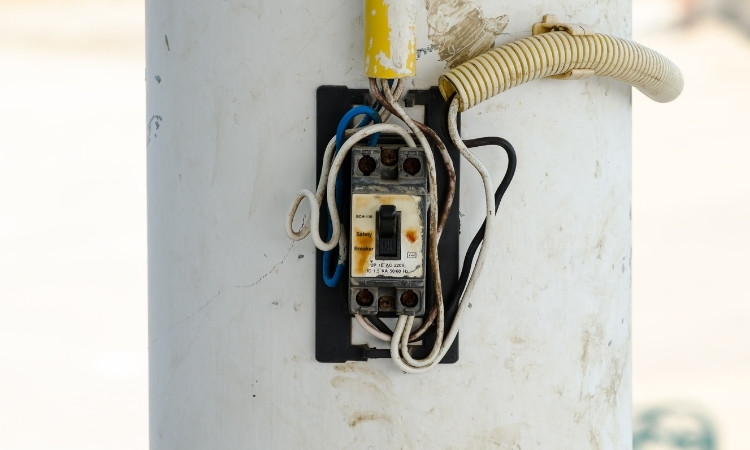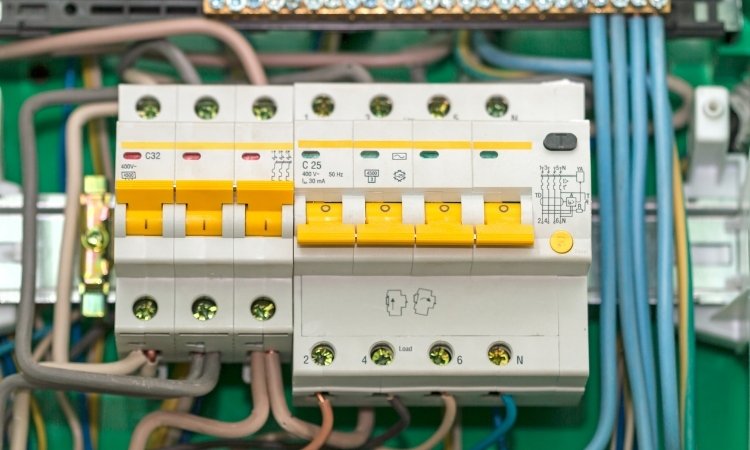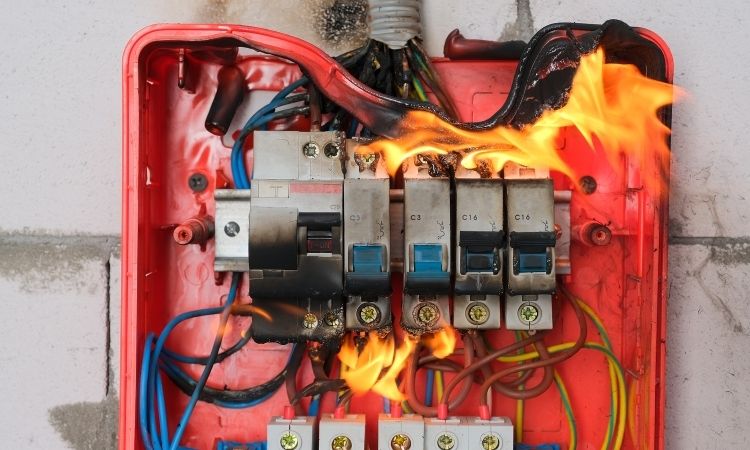Electrical circuit breaker failures are one of those problems you never expect until the lights suddenly go out or your appliances stop working mid-use. In Singapore, where many homes are compact and packed with electronics, these failures are happening more often than people realise.
From tripping breakers during meal prep to full blackouts during rainy nights, the signs are usually there, but often ignored. As someone who’s worked closely with electricians and property owners in Singapore, I’ve seen how local weather, old flats, and daily habits can lead to serious issues in electrical systems.
In this article, I’ll share five specific reasons for electrical circuit breaker failures in Singapore, so you may spot the early warning signs and steer clear of more serious issues down the road. LS Electrician Services Singapore explains the reasons for electrical circuit breaker failures in Singapore. It is important to note that their professional lighting installation, power socket installation, and house re-wiring services need no introduction in Singapore.
1. Using Too Many Devices on One Circuit
This is very common in HDB flats and smaller condos. Many people plug several high-powered devices like air fryers, rice cookers, kettles, and ovens into one power strip. These appliances use a lot of electricity. When they all run at the same time, the circuit gets overloaded.
An overloaded circuit makes the breaker trip to prevent overheating. But if this happens too often, the breaker itself can become faulty and eventually stop working. This is one of the top causes of electrical circuit breaker failures in homes across Singapore.
If your breaker keeps tripping when you use multiple kitchen appliances, that’s a clear warning. This means that your circuit can’t handle the load and may be at risk of failure.

2. Old Circuit Breakers in Older Flats
Many flats in Singapore were built decades ago. Some still have their original electrical panels. These old breakers were designed for lighter electrical loads. They are not made to handle the number of devices we use today, like air conditioners, computers, washing machines, and dryers, all in one home.
I once visited a 1970s HDB unit in Toa Payoh where the owner had never upgraded the breaker box. After years of use, the breaker stopped tripping even during short circuits. That’s dangerous. When a breaker doesn’t trip during a fault, it allows heat to build up. That can start a fire.
Age is a major factor in electrical circuit breaker failures in Singapore. If your flat is more than 20 years old and the breaker panel has never been changed, it’s time to call an electrician.
3. Loose Connections from Poor Installation
Some circuit breaker problems come from bad installation work. I’ve seen units where wires inside the breaker box were not tightly secured. This usually happens after low-cost renovation jobs or DIY electrical work. Loose wires can cause sparking inside the panel.
One client in Woodlands called me after their power kept going out. A licensed electrician found that one of the wires was loose and burning the breaker from the inside. The outside looked fine, but the internal parts were melting. This is a hidden but serious reason behind many failures of electrical circuit breakers.
Electrical work must always be done by certified electricians. A small wiring mistake can lead to long-term damage inside your breaker box.
4. Moisture from Singapore’s Humid Weather
Singapore has high humidity all year round. In areas like bathrooms, kitchens, and service yards, moisture can build up around electrical panels. If the breaker box is not well sealed or ventilated, water droplets can form inside.
This moisture causes the metal parts to rust. Corrosion weakens the connection between wires and the breaker. In some cases, moisture can even cause short circuits. I once inspected a landed property in Serangoon where the outdoor breaker box had rusted badly. The homeowner didn’t notice it until the lights kept flickering during rainy days.
This kind of moisture-related problem is a leading cause of electrical circuit breaker failures in Singapore, especially in homes with open or semi-outdoor electrical panels.

5. Short Circuits or Ground Faults
Short circuits happen when the electrical flow travels along the wrong path. This can be caused by damaged wires, broken switches, or even insects inside the breaker box. When this happens, the current becomes too strong, and the breaker trips immediately.
Ground faults are similar. They happen when current escapes the usual path and touches a wet surface, or a metal part it’s not supposed to. These faults can be deadly if not caught early.
I’ve seen this happen in Bukit Batok, where a leaking washing machine caused a ground fault. The breaker didn’t trip, and the socket started to burn. This is one of the more dangerous causes of electrical circuit breaker failures.
If your breaker doesn’t trip during a short circuit or ground fault, it means the breaker is no longer working properly and must be replaced immediately.
Conclusion
Electrical circuit breaker failures are not random. They often come from daily habits, poor installations, old equipment, or Singapore’s humid weather. These failures are preventable if you know what to look out for.
No matter where you live, an HDB flat, a condo, or a landed home, make it a habit to check your circuit breaker every few months. Watch for signs like frequent tripping, burning smells, or flickering lights. Electrical circuit breaker failures are not just annoying; they are safety risks. Fixing the issue early can protect your home and your family.
